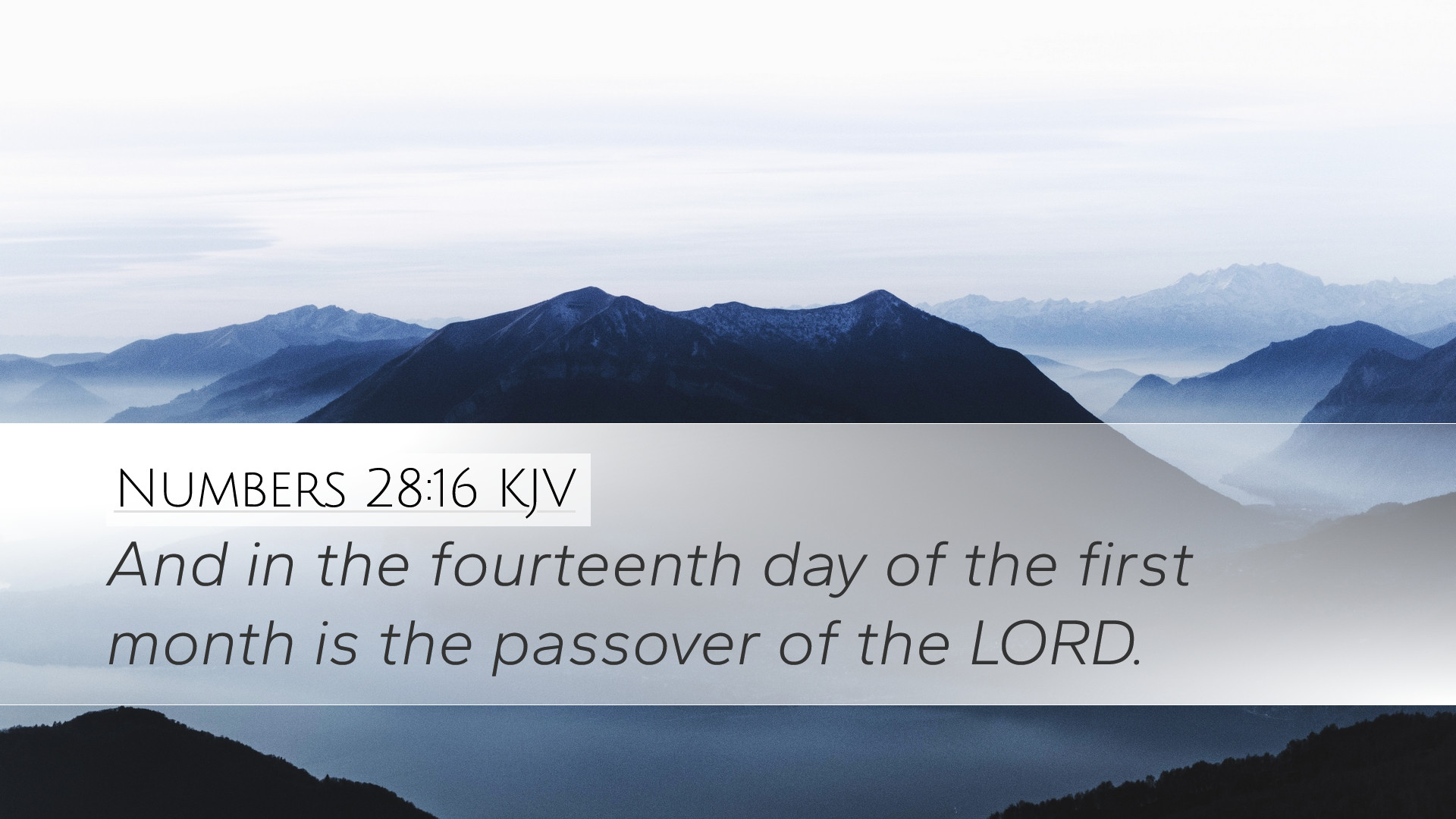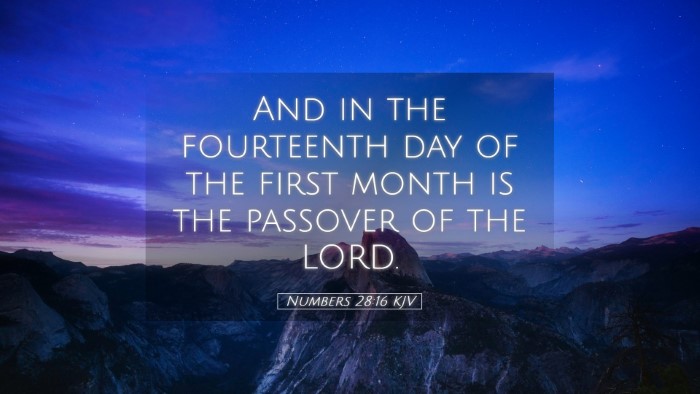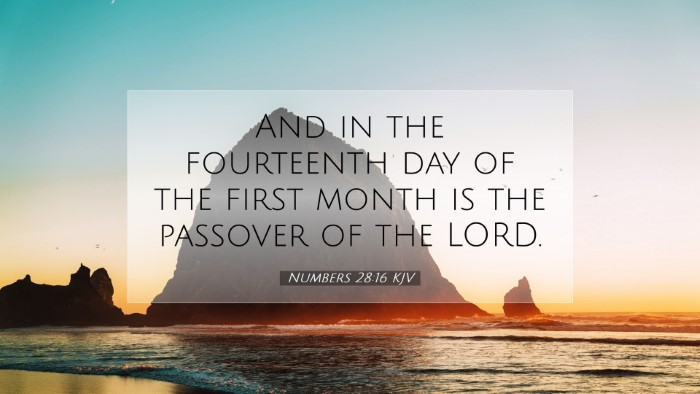Commentary on Numbers 28:16
Verse: "And in the fourteenth day of the first month is the passover of the LORD."
Introduction
The fourteenth day of the first month, which is designated as the Passover, holds profound significance in Israelite tradition and theology. This feast, rooted in historical events, encapsulates themes of deliverance, covenant, and renewal. As we reflect on Numbers 28:16, we draw insights from esteemed commentators to reveal the depth of its meaning for contemporary readers.
Theological Significance
1. Historical Context
Numbers 28:16 highlights the continuity of God’s redemptive plan. Matthew Henry notes that the Passover commemorates the deliverance of Israel from Egyptian bondage, symbolizing liberation from sin and death for believers.
2. Covenantal Importance
Albert Barnes emphasizes that the Passover marks the commencement of the Jewish religious year, underscoring God’s covenant relationship with Israel. This feast serves as a powerful reminder of God’s faithfulness and the obligation of His people to remember their redemption.
Observance and Significance of the Passover
- Faithfulness in Remembrance: Adam Clarke elucidates the necessity of remembering the Passover, as it fosters communal identity and strengthens the covenantal bond between God and His people.
- Symbol of Sacrifice: Both Clarke and Barnes point out that the lamb offered during the Passover foreshadows Christ’s ultimate sacrifice. In this sense, the observance serves as a prophetic foreshadowing of the New Covenant.
- Communal Aspect: The communal aspect of the Passover meal highlighted in the commentaries reflects the importance of gathering as a community to acknowledge and celebrate God’s salvific acts.
Spiritual Application
1. Redemption Through Christ
For theologians and pastors, the Passover signifies not only an ancient rite but also the enduring truth that redemption comes through the blood of the Lamb. The parallels drawn between the Passover lamb and Christ underscore the central tenet of Christian faith—that Christ is our Passover sacrifice, enabling believers to escape the judgment that sin incurs.
2. Call to Obedience
This verse calls for an active response from God’s people. As Matthew Henry posits, the obligation to observe the Passover can be seen as a directive for believers today to remain obedient to God's commandments, reminding us of the importance of shared faith traditions and acts of worship.
Conclusion
In summary, Numbers 28:16 serves as a beacon of God’s enduring faithfulness and His desire for His people to remember and celebrate His deliverance. The rich insights drawn from the commentaries of Matthew Henry, Albert Barnes, and Adam Clarke reveal the multifaceted nature of the Passover, inviting pastors, students, theologians, and scholars to delve deeper into its implications for understanding the redemptive narrative from the Old Testament to the New.
Final Reflections
The observance of Passover in the Jewish tradition not only marks a pivotal moment in history but continues to inspire and instruct Christians on the importance of remembrance and communal worship. As we engage with this scriptural text, let us appreciate the profound layers of meaning encapsulated in this vital celebration of faith.


